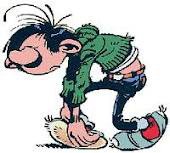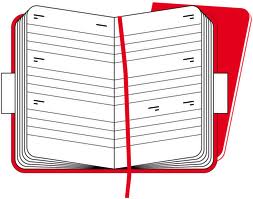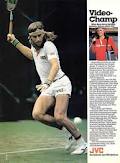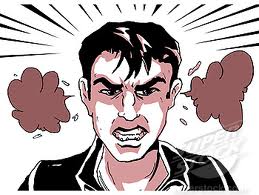Manage your fatigue
Not just in tennis, but also in daily lives, fatigue is a non-ticking time bomb. It is non-ticking, because you can't exactly hear it. You can maybe sense it, but there are no loud alarms going off.

The most difficult time of the year for the pros is November/December. They have had ten months of non-stop travelling, practising and competing. In their cultural traditions, a pause, the Christmas holiday, is looming. Regardless of whether you do anything special or not at Christmas, if you see an opportunity for a pause, you go for it.
Manage fatigue with planned performance peaks
Part of the problem is achieving so much, or taking in all that has happened, during the rest of the year. You may have peaked at a time when you didn't expect it. You may have planned in a reasonable, even, schedule, but you have been surprised by events. If you try and soldier on with your planned schedule, fatigue will catch up with you.
In the 2012 end of season Championships in London, Nadal, Djokovic, Murray and Fish were all brain dead. They all played fine in London, but their peak performance had come and gone. I claim it is really dangerous, physically and mentally, to make a player compete in these conditions. If not, you may need a bigger pause later, just when you haven't scheduled it.

Stay healthy in your sport
The pros aren't stupid. However, they want to please their public. They want to earn some big money. But they turn up to London in non-chalant mood. We don't see the real players. They are being reasonable with themselves, so they have no pretensions of winning the event, let alone one match.
The players who have either had quiet years (in this case Federer), or who are on an end of season roll (Ferrer, Tipsarevic, Tsonga) can profit from the others weakening. It is sad that an end of season spectacle is such a damp squib. But the pro calendar is structured like that. The sponsors demand it, so that is what they get.
Sponsor calls the tune
There has been mention all through my observation of pro tennis of the players reducing their schedules. Borg and Lendl did it, McEnroe and Cash did it. Some players managed their schedules AND sponsor demands very well, but most of these top players do play too much. Djokovic played over sixty matches last year. I have juniors with me who play over 100 matches a year. How can that be so bad to play sixty matches?

The French ranking system makes you play a lot
It's chiefly a mental fatigue problem. A player like Djokovic will be expecting to win tournaments he enters, so he'll have five matches in one week. He must win them all. He'll want to be efficient, not spending any longer on court than is necessary against lesser players. He plans his whole week on being smoothly efficient in early rounds, and playing one, at worst, two, really big matches at the end of the week.
Although this rythmn repeats itself every tournament week, this creates pressure. There is the risk of failure, of the organisation, or attentiveness, or motivation, going off 1%. A 1% margin in tennis is huge. You can miss one shot you usually hit, and even for a pro this is infuriating. It mustn't happen.

Mistake - smoking ears
For a junior this type of weekly planning doesn't exist. He will be living his life much more like a pro who is ATP rank number 80.
First of all, there is no real objective to win a tournament. Great as it may sound, you don't enter every tournament to win it. A standard objective with my players is to beat one player with a higher ranking than you. In France this delivers important bonus points at year end. If you don't achieve this win, then at least you should be incorporating habits that have been developed in training. Ideally a player should be doing both, and still not experiencing fatigue.
In a typical tournament a player will have an average of just two matches, so I frequently plan two tournaments in one week. The travelling will not be excessive. The change of surface will be a little disturbing, but you soon get used to that. In this scenario you'll lose a match, and know that witihin a couple of days you have another tournament. The defeat recedes quickly into significance. I believe a player should be able to keep up such a rythmn for four or five weeks. Then there'll be a pause.
In the pause I recommend that players stay on the academy site, practise hard, and follow the matches of his academy colleagues. The fact that there are no matches for two weeks is pause enough. A match is so different from training, that by eliminating the matches, you are immediately eliminating pressure and a perfect opportunity to recharge the batteries.
I don't recommend going to lie on a beach for two weeks. The change of rythmn may give an opportunity for a COMPLETE rest, but that is only for players who are really struggling in match play. A real matchplaying pro will be hitting plenty of balls in his time off. He'll be having more fun, working on a couple of things with his coach, but he can switch off his competitive button to almost zero if he wants.
Let the pressure recede
Every now and then a player fatigues so severely, he cracks completely. He completely abandons the game, or may even "forget" how to play. A mental block appears, a real case of burnout. Some players get close to this burnout state relatively frequently, but the objective is not to fear it, but to feel it coming and to react. When you commit so much of your life to tennis you want to keep enjoying the pressure. So every time you feel over-burdened, you must make adjustments to the schedule.
I've never had a player suffer burnout in the academy, but I've seen one or two cases in my earlier club life. In particular one February, I remember a town championships I played in where I had to play against one of the team stars, possibly Number Four in the town. He was a big strong player, technically very good, just thinking about his first year of higher studies. I beat him in a very close semifinal. I saw him at training the week after, then never again. He simply vanished after ten years of match tennis. He did a Borg-style departure from the game.
Fatigue is the problem. For such a young man, it wasn't physical fatigue. It was of the mental kind, a realisation, unconcious possibly, that he maybe now had other things to do with his life than hit balls and lose stupid matches to people he shouldn't be losing to.
Keep your education going
Personally I don't feel mental fatigue much. I believe much of this is to do with getting to bed early! In fact, on the tennis court, I love the challenge of finding concentration and desire when it has already disappeared from my opponents or partners.
Physical fatigue is much more difficult to judge. I've always been a compulsive ball-hitter. I've hit thousands of tennis balls, but a match can come at the wrong hour against the wrong opponent, and my body is refusing. It doesn't happen often. In all the matches I played last year it happened once. In training it didn't happen even once, I wanted to hit and hit and hit. All that at my age!
Have A Great Story About This Topic?
Do you have a great story about this? Share it!
